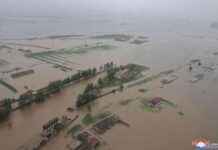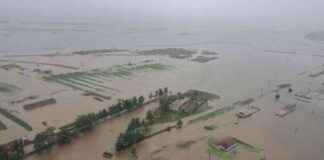Developing a Habit of Disaster Readiness: Public Urged to Take Action
Thailand has come a long way in terms of disaster preparedness since the devastating 2004 tsunami, but there is still more work to be done to ensure the safety and well-being of its people. The United Nations Development Programme (UNDP) is urging the public to make disaster preparedness a routine habit to prevent massive casualties in the future.
The 2004 tsunami, triggered by a 9.1-magnitude earthquake off the coast of Aceh province in Indonesia, claimed the lives of 227,898 people across 14 countries along the Indian Ocean. In Thailand alone, 5,395 people lost their lives as the tsunami hit six provinces along the Andaman coast.
Lessons Learned from the Tragedy
Niamh Collier-Smith, the UNDP resident representative in Thailand, emphasized the importance of learning from past tragedies. She highlighted the valuable lesson that preparedness is key to survival, especially in the face of natural disasters like tsunamis. Collier-Smith mentioned that in 2004, many people were caught off guard because they had never experienced a tsunami before, underscoring the need for proactive disaster preparedness measures.
Building Resilience Through Preparation
Collier-Smith stressed the significance of early warning systems, regular evacuation drills, and community engagement in ensuring a swift and effective response to disasters. She also emphasized the importance of communication tools and data sharing between countries and regions to enhance preparedness efforts.
Commitment to Disaster Management
Deputy Interior Minister Sabeeda Thaised echoed Collier-Smith’s sentiments, emphasizing the need for active risk and disaster management policies in Thailand. She affirmed the government’s commitment to prioritizing disaster management research, knowledge-sharing, and the establishment of efficient disaster management mechanisms to enhance safety and resilience at both regional and global levels.
In conclusion, the call to action is clear: disaster preparedness must become a way of life for the people of Thailand to ensure that they are equipped to handle future disasters effectively. The lessons learned from the 2004 tsunami serve as a reminder of the importance of readiness, prevention, and mitigation in safeguarding lives and communities. Thailand’s commitment to enhancing disaster preparedness is a step in the right direction towards building a safer and more resilient future for all.




















